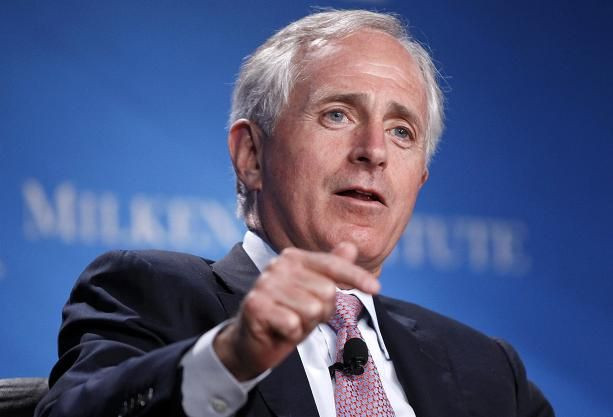Budget Battles: Republicans Open To Grand Bargain, Considering Giving Democrats New Revenue

A "grand bargain" for deficit reduction envisioned by President Barack Obama seemed all the more possible on Sunday, when a leading senator indicated that Republicans are willing to budge on taxes -- so long as rates are not increased.
Sen. Bob Corker, R-Tenn., gave Capitol Hill watchers some cause for hope when he said Republicans are willing to consider closing loopholes, but not to bring in new revenue through a tax rate hike.
“I think there is a chance of a deal,” Corker said on “Fox News Sunday.”
The Tennessee Republican said so long as the GOP sees true entitlement reforms coming from the Democrats, its members will be glad to look at "tax reform" as a means of generating new revenue.
“That doesn’t mean increasing rates,” he said. “That means closing loopholes. It also means arranging our tax system so we have economic growth.”
But the GOP will know Obama is serious only “when he explains the average American family is only paying one-third of the cost of Medicare,” Corker said.
Obama has been calling for a mixture of tax increases and spending cuts to address the nation’s fiscal problems. But Republicans have refused to budge on bringing in new revenue through taxes after signing on to a tax increase in January to pull America away from the "fiscal cliff." They say it is time to rein in spending and reform entitlement programs such as Medicare.
With the sequester already in place and beginning to bite and more fiscal deadlines looming, Obama last week courted Republicans in hopes of persuading them on a grand bargain. The House and the Senate recently put forward competing 2014 budget resolutions.
Under the House plan created by Budget Committee Paul Ryan, R-Wis., the federal deficit would be reduced by about $5 trillion over a decade through spending cuts alone, while the Senate’s plan will use spending cuts and tax increases to cut $1.8 trillion.
Senate Majority Whip Dick Durbin, D-Ill., who also appeared on "Fox News Sunday," agreed that both sides share some common principles on balancing the budget but that Ryan’s plan is destructive to Medicare.
Still, House Speaker John Boehner, R-Ohio, remained more reserved about a broad deal. He said revenue talks are over.
“I don't know whether we can come to a big agreement,” Boehner said on ABC's “This Week.” “If we do, it will be between the two parties on Capitol Hill. Hopefully, we can go to conference on these budgets - and hope springs eternal in my mind.”
© Copyright IBTimes 2025. All rights reserved.






















